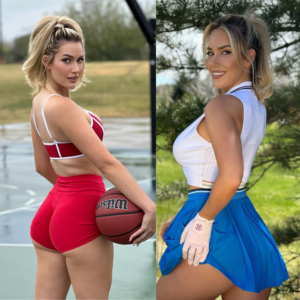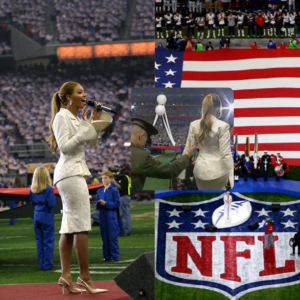John Legend is a lover man, a family man, a soul man, an EGOT, a film and television producer, and — in a role that certainly has not escaped the attention of the president of the United States, or most anyone else — a political animal. That he does it all with conscience and consciousness is what makes Legend a potent force, whether he’s discussing public policy, dissing Donald Trump or crooning the songs of hope, heritage and devotion recently found on his seventh studio album, “Bigger Love.”
Notwithstanding his visible and talked-about role as a social justice gadfly and policy wonk, Legend, 41, remains a deeply passionate musician who in 2020 has made colorful R&B that’s optimistic and bright, even in the face of a global pandemic and radical social upheaval. Talk to the singer-songwriter about the Juneteenth-released “Bigger Love,” and he explains that the joy, grief and romance that inform its 16 songs make sense in these most divisive of times.

Ramona Rosales for Variety
“Part of the album is about resilience — that love can help us power through hard times,” he says. “Of course, I didn’t know I was releasing ‘Bigger Love’ during a pandemic or that, two weeks before its release, there’d be a nine-minute snuff video of an officer killing George Floyd. I didn’t know what landscape I’d be releasing this album into. I do believe that there is more to the Black experience in America than mourning, anger and outrage. There’s more to our humanity. I was looking for the sound of love in what is a pretty scary time.”
Legend is a provocative political thinker, activist and advocate for social and racial justice who puts his time and money where his mouth is. He worked on the “Yes We Can” video with Will.i.am in 2008 that was built from then-presidential candidate Barack Obama’s concession speech in New Hampshire — a video that some say helped turn around his Democratic primary campaign against Hillary Clinton. He readily takes on systemic issues — especially when it comes to subjects such as COVID-19, Black Lives Matter and the president who has followed Obama. Donald Trump once tweeted that Legend was “boring” and his wife, Chrissy Teigen, “filthy mouthed.” The two consider his enmity a badge of honor.
“President Trump is obviously a bigot,” says Legend coolly. “He’s been a bigot his entire life. I believe he is a eugenicist. … He’s not capable of leading the country when we have moments of racial unrest and responses to racism. We’re always going to be a weaker nation with him in charge, and it is an urgent priority that he is not in charge.”
Legend’s sense of self and self-worth, his understanding of commerce and his willingness to branch out are some of the things that have made him a mogul. Since 2005, he has held the note on his touring company (which includes private concerts) as well as owning his publishing, administered by BMG. There is the LVE Collection of wines (in collaboration with Napa Valley’s Raymond Vineyards) and a wealth of product endorsements, from Hint Water and Stella Artois beer to Pampers and Google Assistant. The last deal led to Legend becoming the voice of the AI app until recently.
Both the Pampers and Google Assistant ad runs were created in unison with Teigen, a model, cookbook author and social media force with her own unique voice. “When it comes to Chrissy, I’m there as a friend, adviser and support system — to talk her up — but she’s running her own show,” he says.
His collaborative nature has also served him well. He and his production venture, Get Lifted Film Co., executive produced NBC’s 2018 Emmy-winning “Jesus Christ Superstar Live in Concert,” alongside Andrew Lloyd Webber, Tim Rice, Marc Platt, Craig Zadan and Neil Meron, with Legend in the title role. Get Lifted was behind the 2017 Broadway production of August Wilson’s “Jitney,” which won a Tony for best play revival. And the second stop on his EGOT tour, an Oscar for original song for “Glory” in Ava DuVernay’s 2014 film “Selma,” was shared with co-writer and co-performer Common.
“John is one of the greatest collaborators I’ve worked with,” says Common, who has also hooked up with Legend on some of his own albums. “When we created ‘Glory,’ it was a phone call about being the heart and soul of the movie. He asked me for three titles, and we went with that one. From that title, he wrote the chorus. That chorus exemplifies and embodies everything I imagined and more.”

Ramona Rosales for Variety
Ask John Legend what makes him adept at so many things and he laughs. “I like to think I do everything with passion,” he says, “but certainly music comes first.”
The artistic enterprise nearest his heart after music is Get Lifted, launched in 2012 and named for his breakthrough 2004 debut album. He uses three words to measure the company’s success: “Impact, influence and integrity.”
And profit? “We care about making money,” he allows, “but I’m fine with that. The reason we have success in ancillary businesses beyond music is because we hire really good people and partner with really good people. We hold ourselves and those we work with to high standards. We come together to create something wonderful and beautiful, be it a song, a film or television production, or something geared toward social and racial justice.”
The “we” that Legend refers to are longtime friends and associates Mike Jackson and Ty Stiklorius. Stiklorius also acts as his lead manager. Legend’s trust in friendship goes deep: Before him, Stiklorius never managed an artist.
Legend and Stiklorius attended the University of Pennsylvania in the ’90s. She sang with him in Counterparts, a university vocal group of which he was musical director. She learned early on that they both had activist souls. “Back when I started working with him, he had just put out ‘Get Lifted,’” says Stiklorius of Legend’s double-platinum debut that won Grammys for R&B album and male R&B performance. “He was so smart and so thoughtful. John, at that point, was the guy giving me books to read about politics and poverty. That was his thing: always raising the consciousness of anyone around him.”
“I do believe that there is more to the Black experience in America than mourning, anger and outrage.”
John Legend
Jackson, who went to Penn State, had dated Stiklorius in high school in Philadelphia. She introduced him to Legend. Fresh out of college in 1999, Legend tapped Jackson to be his manager. Jackson says he knew Legend’s ambitions went far beyond that of the average singer-songwriter.
“John had visions of what he could do to make the world a better place,” Jackson says. “We all believed that he was evolved, so what was the best way to prove that? By utilizing the scope of that platform and the things we wanted to put out into the world.”
That meant creating content outside of music, in a universe where Legend could promote a story he wanted to share, or identify people with tales to tell and generating opportunities for them. “He’s the reason I got involved in television and film,” Legend says of Jackson, “after explaining to me how the business worked and that my name did actually mean something in Hollywood.”

Ramona Rosales for Variety
Success for Legend as a multihyphenate came quickly; Get Lifted won an overall deal from Universal just nine months after the trio launched the company. Still, Legend says the process was not an easy one. “The first thing that studios wanted to know was if I was serious about all this,” he recalls. Adds Jackson: “I think people thought that this was just another musician and another vanity project.”
Get Lifted has championed projects that are close to Legend’s heart. The 2015-16 Pop TV reality series “Sing It On” involved competitive collegiate a cappella teams, like the one he led at Penn.
News
Paige Spiranac, a former professional golfer turned influencer, has found immense success in her career as a social media influencer, model, and media personality. With 3.9 million Instagram followers and 1.5 million on TikTok, she has become a prominent figure in the online world.
Paige Spiranac flattered to inspire others, including copycats, in Social Media success In a recent interview with The U.S. Sun at The SI Invitational, Spiranac expressed her…
Golf influencer Paige Spiranac knows exactly what some people think of her, and she had the perfect response ready for those critics.
Paige Spiranac posts brilliant response to sexist critics who think she does not know how to golf She played dumb in order to prove her point The Instagram…
PAIGE SPIRANAC delighted fans with her latest social media post.
The golf influencer loves to upload snaps of herself from various courses around the world. 28 Paige Spiranac posed in a figure-hugging black dressCredit: https://twitter.com/PaigeSpiranac 28 Fans love…
Paige Spiranac fans left distracted as she teases curves in busty outfit
Instagram influencer and golfer Paige Spiranac gave her fans an eyeful in her latest post. Paige Spiranac shares golf tutorial Fans of golf star and social media…
Crowned The King Of R&B, Chris Brown Has Amassed A 2024 Net Worth Of $50 Million
Chris Brown is an iconic and well-known singer, songwriter, actor and world-class dancer. Working since he was 16, Brown has continued to thrive within the entertainment industry and…
NFL fired Beyoncé after just 2 minutes on stage for singing ‘Alternative National Anthem’ at NFL.
In a world where celebrities often tread lightly around political and social issues, global superstar Beyoncé has never been one to shy away from making a statement….
End of content
No more pages to load











